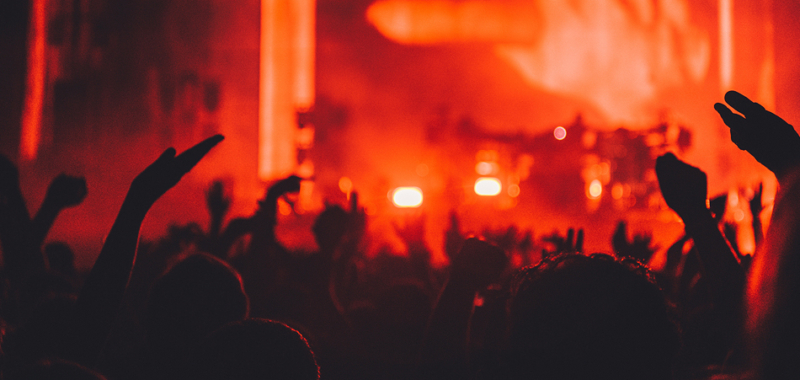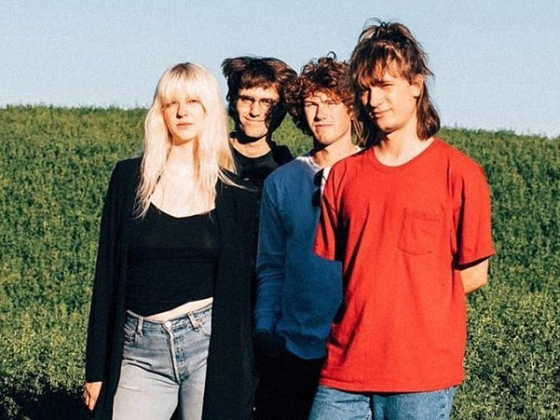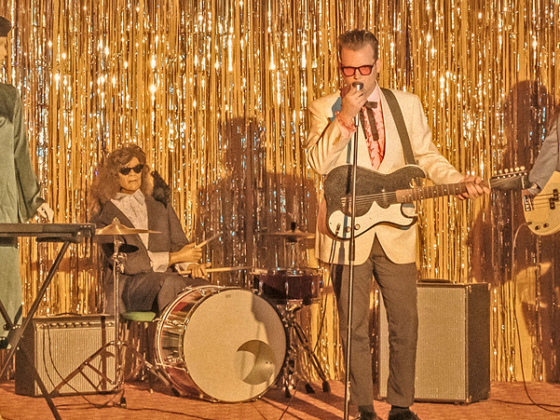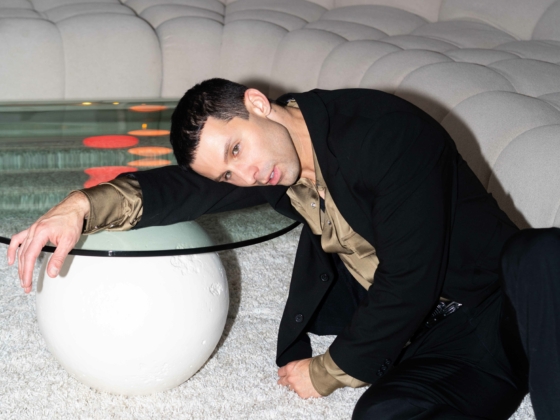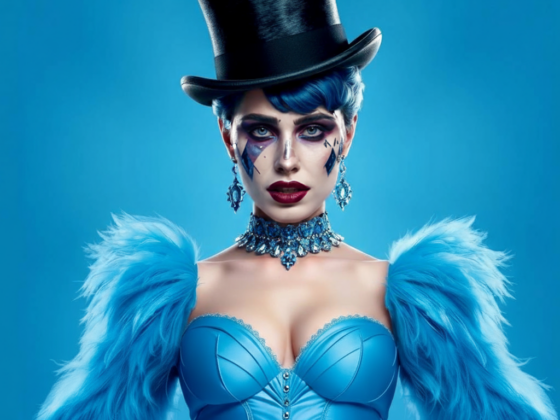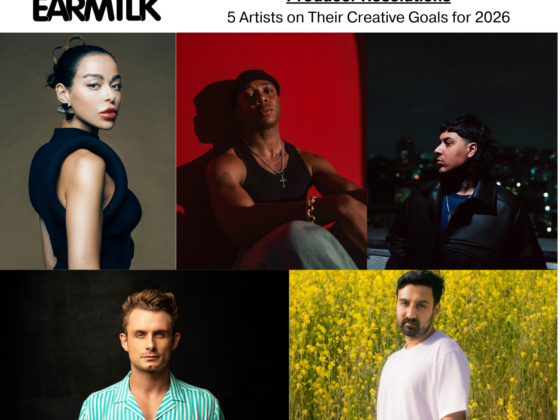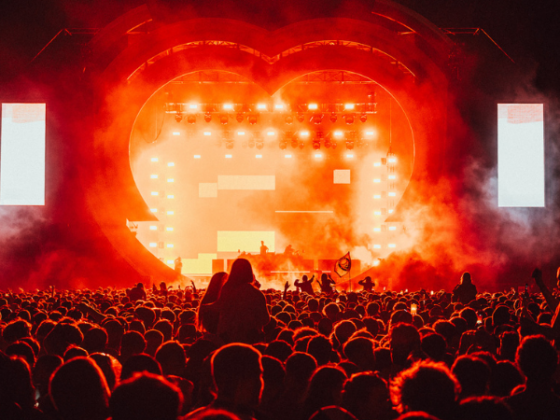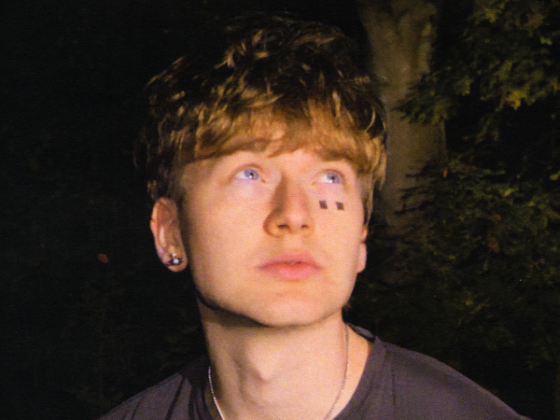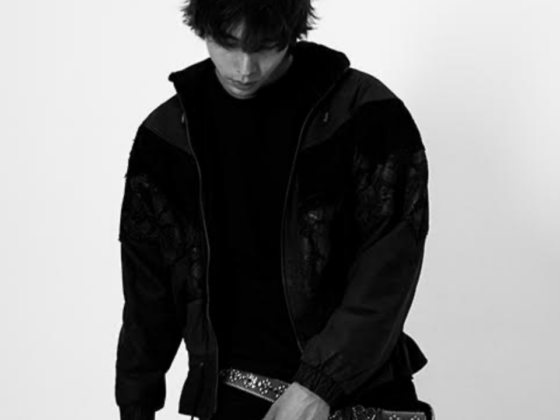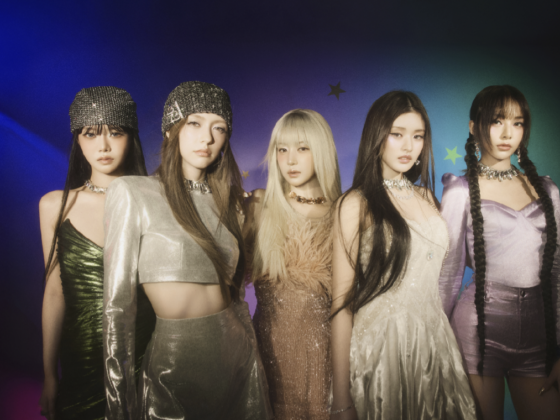When Kitchener, Ontario's premier electronic dance music festival, Ever After, opened up its gates for the first time six years ago, it was an experience like nothing else Canada has seen before. While the music festival industry was thriving in other parts of the world, it was seeing a much slower growth in the Great White North. Toronto's fledgling electronic music festivals Veld and Digital Dreams were just starting to gain their footing, but Beyond Oz Productions' president, Gabriel Mattacchione, still felt like they were missing something important—a more comprehensive experience. So he decided to create one.
Since its inception, Ever After has successfully built an international profile, luring fans from all over the world to its weekend of heavy bass acts, spacious campgrounds, and even a water park. Perhaps one of the most impressive feats, however, is that it is an event that is still run by a family-owned company without any corporate sponsorship, relying solely on its ticket sales. But much like the rest of the world's entertainment industry, it has come to a screeching halt this year after making the decision to postpone 2020's festival due to COVID-19. In honour of what would have been its sixth iteration last month, EARMILK caught up with Mattacchione to discuss what makes Ever After so special, and what it might look like moving forward.
EARMILK: Thank you so much for taking the time to speak with me today. To get to know you and what you do a little better, can you let us know how you started Ever After and what was the motivation behind it?
Gabriel Mattacchione: I'm the younger gentleman in my family and coming out of school at that time, I was an avid festival and concert attendee and fan. You know, sneaking into clubs as young as fourteen, fifteen-years-old, just to see some electronic artists that really at that time, no one in my age category or group was really into. The motivation was to bring a product— a true festival product to Ontario, somewhere close to my backyard, that really gave attendees an experience that I found lacking at other events and festivals that I went to.
EM: That's interesting. So what was lacking at other festivals that you wanted to bring to Ever After?
GM: The main point and the main thing that was really missing was that back in the day, everything kinda became a festival. That term was used really loosely in the industry, so I truly believe—outside of a few like Shambhala and Pemberton—outside of those, everything else in Canada was really just a multi-day concert. The focus was on the artists and the acts and whoever was on that stage, and it was really, up until we curated Ever After, there was really nothing else to do in those things. There was no little games section, camping wasn't a thing that came to mind when it came to these festivals. There was nothing outside of the acts that was attractive for these large scale events. And you know, me being a huge fan was okay with that, but when I started meeting people and going with friends, when it started to become more mainstream, there were a lot of friends and people I met where for a few hours, really didn't like anyone on the stage an it was kind of a bummer. What do you do for those few hours? So that was a natural gap that I found that was in the Canadian space in the industry. There was no experience attached to these events.
EM: You're completely right, but why do you think that was the case? When some of these Canadian festivals first started popping up, they had a slew of European or American festivals to model themselves after. Why do you think they limited themselves and didn't include options like camping or any other non-music related experiences?
GM: I think the Canadian model really was developed on a corporate level. This is the boring part of the answer. Out of these corporations, how does one monetize an influx of people in one area? If you're Live Nation or AEG, how do you get your acts into other parts of the world to do worldwide tours so they can play at massive festivals like Coachella? I think it was heavily driven by the corporate world: You know what, it's a music festival and that's what it's going to be. It's not going to turn into what's now, I believe, is many 19-28 year olds' vacation for the year. That was never a thought when curating these events, whereas now I think it truly is and has to be a thought.
EM: I don't think that's a boring answer at all, it's actually quite interesting for someone who is used to being on the other side as just an attendee. Now, I admit the fact that you guys allowed ticket holders to use their tickets for either the 2021 festival or 2022 was admirable. I didn't really see any other festivals doing that. What was the drive behind that decision?
GM: Certainly one of the questions floating around our boardroom was, 'what if 2021 can't even happen? Then what?' So let's extend the offering. And you know, as much as we're safe and secured and protected with terms of services and things people automatically sign off on when they being a ticket, I still believe in being more direct, correct. Giving them that extra year to really navigate—'ok, if I can't go next year'—for whatever reason, people could be planning a kid or whatever may come up. Giving them that extra runway—'ok I can go in two years?' —I think was just the most fair and just thing for us to do. Especially being a family operated and run company with no corporate backing. The ticket money is something we use to stay alive. It gave us no opportunity to refund everyone and start over whenever we can. We just don't have those means to do so. So how do we give the patrons the best option possible in a really bad, unfortunate time?
EM: So you say you don't have any big sponsors or corporate backing. I'd imagine that you can look at it as either being a pro or a con (from a monetary perspective). How do you like to look at it?
GM: You know, I curated this because of certain things that I didn't like about what the experience truly was at other festivals I've gone to. When you have a corporate sponsor who is, let's say, handling the budget or shelling over millions of dollars, they really run the show and if they want that festival to be a corporate billboard, it's going to be a corporate billboard. Because we don't go that route, we really have the free range to listen to the patrons and see what they want, what they like, what they didn't like, and really give us the ability to react and give them something to look forward to the next year.

EM: This whole experience with the pandemic, did any of it shift your perspective or reorganize your priorities when it comes to hosting an event of this scale? For example, is the lineup still one of the most important aspects or did that scale down a bit now that public healthy and safety has been put under such a microscope?
GM: That's a very good question. First and foremost, the lineup is always an aspect and I'd say is in the higher spectrum, but we got into this to serve a purpose of giving an experience. That experience to me was, what else is at this festival other than what's on stage. Did it change my perspective then? Not a whole lot, because we always looked at the full spectrum of what a festival can be and try to provide all of it. You know, for example, maybe you don't like electronic music, you can probably convince a friend to come to Ever After because its fun to camp, and go on the ferris wheel, or the water park and do all these different things, that maybe they end up falling in love with electronic music after this event because they got attracted by something else.
EM: As a slight aside here, I am a bit curious about something. Historically, the lineup has been filled with heavy bass acts, which is its own little niche of electronic music that I think a lot of people appreciate because it's not one that is often seen or is very popular at other festivals. Was that your own decision?
GM: That was my own sole decision. I've always been a big fan of bass music, so giving it that light and saying, okay, let's bring this into to a large spectrum in my own backyard, I always thought that was super cool. The business side of me also came into that decision as well, and say, okay, we have two or three major competitors fairly close to us, and how do we really separate ourselves from them? And to your point, we've never really in the past seen bass acts take the main stage, they were always the small side stage. But what I really noticed was that those fans were super passionate and they could stand there all day and night and miss the biggest act in the world for someone that probably no one even heard of. I thought that was super cool, too.
EM: I love that it's essentially a place for all the underdogs. Now, there has been a lot of talk in the industry about the economic devastation this has perpetuated for many artists. Do you think festival/event organizers have a responsibility to help the artists they're hosting with any extra exposure or building their profile?
GM: I think there's a little grain of responsibility there on the promoter. But Im going to flip this on you and actually say I think it's more of the artist's responsibility to help the promoters. I think the artists really have to start looking at festivals more as a collaboration rather than a 'take as much money as I can with little to no risk'. Inherently, we certainly do publish artist spotlights and try to get them as much exposure as possible, but the unfortunate reality is that a lot of artists don't care to do the same. When smaller, more infant festivals ask them to do certain things, I see probably a percentage higher than 50% deny or decline the opportunity.
EM: Hmmm. I did not think about that. The whole online discourse has been primarily on helping artists. I do see some tidbits about small venues that are being forced to close down, and they have some GoFundMe initiatives, but it does get overshadowed a lot. It is a symbiotic relationship, at the end of the day, between the artists and the venues, so there does need to be a balance struck between the two.
GM: Yeah, like don't get me wrong, I'm not bashing any artists. We have fantastic relationships with the artists themselves as well as their agents and managers. But to your point, it's not exactly equal or even in terms of what was appreciated prior to COVID. I see a lot more now that artists are willing to work with us and willing to work with terms. There's definitely going to be a realization of how important the promoters are as well as the venues and how important it is to help them be successful so that there is a place for these artists to play.
EM: Gotcha. So what does Ever after look like for 2021? Are there some "new normals" that you now have to consider or implement?
GM: There hasn't been anything truly defined yet, but we have daily discussions on what we believe some regulations and what some challenges we may have to work through will be. We're avidly making plans to try to figure that out. It's still, as crazy as it sounds, a little too immature to really make a statement on 'this is how it's going to be'. I know for sure the health and sanitary regulations are probably going to be more strict. With that being said, we're looked at heavily by all regulators. We're already under the microscope of the city, the health district, fire, police, all these people to make sure these events are the cleanest and safest they can be.
While the state of live concerts and events is still largely uncharted, if the cancellations and postponements of the past few months have taught us anything, it's that live music will never go unappreciated. Stay up-to-date with any Ever After updates and ticket information by following them on the links listed below.

